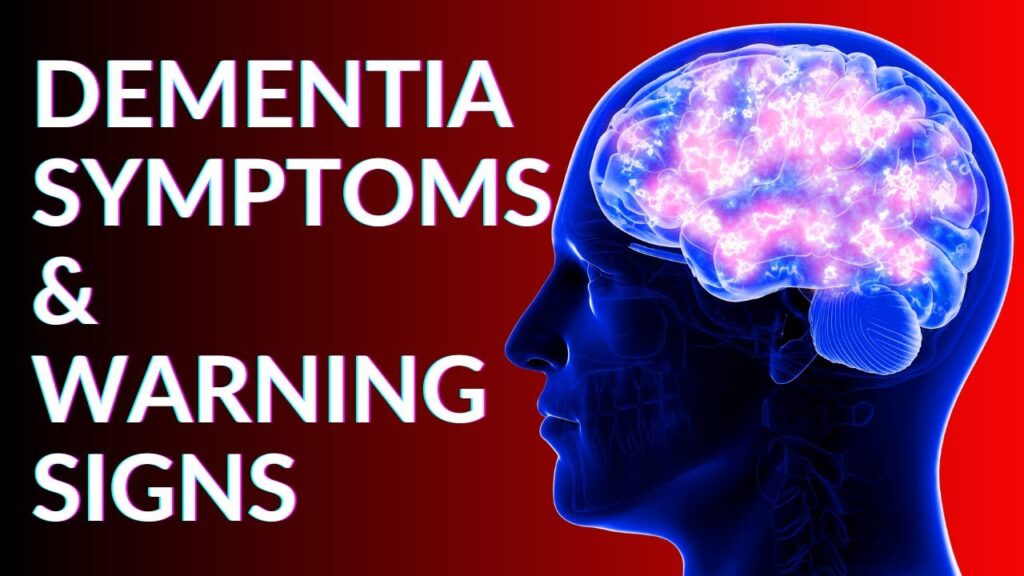
Are you or someone you love showing signs of forgetfulness, confusion, or personality changes? While these might seem like normal signs of aging, they could actually be early indicators of dementia—a progressive condition that affects memory, thinking, and behavior.
The good news? Early detection can make a major difference. In fact, with the right habits, you may even prevent further progression or reverse early-stage decline. In this article, we’ll explore the 10 warning signs of dementia and share effective strategies to boost brain health.
🔍 What Is Dementia?
Dementia is an umbrella term for a group of brain disorders that cause memory loss, impaired reasoning, and behavioral changes. While Alzheimer’s is the most common type, all forms of dementia share similar warning signs.
Catching these signs early is crucial—because taking action at the right time can help slow down or even reverse some symptoms.
🚨 10 Early Signs of Dementia You Shouldn’t Ignore
1. Memory Loss That Disrupts Daily Life
Occasional forgetfulness is normal—but frequently forgetting recent events, names, or appointments, and relying heavily on memory aids, can be an early red flag.
2. Difficulty Planning or Solving Problems
Struggling to follow a familiar recipe or manage monthly bills? Difficulty with problem-solving and planning often appears in the early stages of dementia.
3. Disorientation to Time or Place
Losing track of dates, forgetting where you are, or getting lost in familiar surroundings could indicate cognitive decline.
4. Trouble Completing Familiar Tasks
Tasks that once seemed routine—like preparing a meal, driving to a known location, or dressing—may become confusing and overwhelming.
5. Withdrawal from Social Activities
People in the early stages of dementia often begin to avoid social interactions, hobbies, or work due to frustration, confusion, or embarrassment.
6. Mood and Personality Changes
Irritability, anxiety, depression, or noticeable mood swings could be early behavioral signs of cognitive decline. These changes may appear suddenly or gradually.
7. Difficulty with Words and Conversations
People may struggle to find the right words, repeat themselves frequently, or lose track of conversations. This can lead to growing frustration and isolation.
8. Poor Judgment
Making risky financial decisions, neglecting hygiene, or falling for scams are warning signs of poor judgment—often linked to early dementia.
9. Repetitive Behavior
Repeating questions, stories, or activities multiple times a day may signal short-term memory issues.
10. Loss of Interest in Hobbies or Work
Suddenly abandoning favorite hobbies or neglecting responsibilities can reflect an early mental and emotional withdrawal from normal routines.
🛡️ Prevention & Reversal Strategies to Boost Brain Health
While dementia can’t always be cured, early intervention and healthy habits can greatly improve quality of life and slow cognitive decline. Here’s what you can start doing today:
🥗 1. Follow a Brain-Healthy Diet
Fuel your brain with omega-3 fatty acids, antioxidants, and anti-inflammatory foods.
- Top Foods: Berries, leafy greens, nuts, olive oil, fatty fish (like salmon), and whole grains.
- Helpful Supplements: Omega-3s, vitamin B12, magnesium, and resveratrol.
🧠 Tip: Avoid processed foods, trans fats, and refined sugars, which increase inflammation and impair brain function.
🏃♀️ 2. Exercise Regularly
Physical activity increases blood flow to the brain, stimulates new neural connections, and enhances memory.
- Aim for at least 30 minutes a day of walking, yoga, or light strength training.
- Even light activity reduces stress and supports healthy aging.
🧩 3. Keep Your Brain Active
Challenging your brain keeps it flexible and resilient.
- Try puzzles, crosswords, reading, learning new skills, or playing a musical instrument.
- Even 15 minutes a day of mental stimulation can make a difference.
🗣️ 4. Stay Socially Connected
Regular interactions help reduce the risk of depression and cognitive decline.
- Make time for phone calls, meet-ups, or community events.
- Social activity stimulates brain regions responsible for memory and emotion.
😴 5. Prioritize Sleep
Sleep is essential for brain repair, memory consolidation, and toxin removal.
- Aim for 7–9 hours of restful sleep each night.
- Establish a calming bedtime routine and limit screens before bed.
Final Thoughts
Dementia doesn’t happen overnight. The early signs can be subtle but deeply significant. Recognizing these symptoms early gives you a better chance to slow progression, support brain health, and maintain independence.
By making simple lifestyle changes—like eating a brain-boosting diet, staying active, sleeping well, and engaging socially—you can take control of your cognitive future.
🌟 Take action today. Share this article with someone who might benefit from it. Early awareness and proactive steps can change everything.
